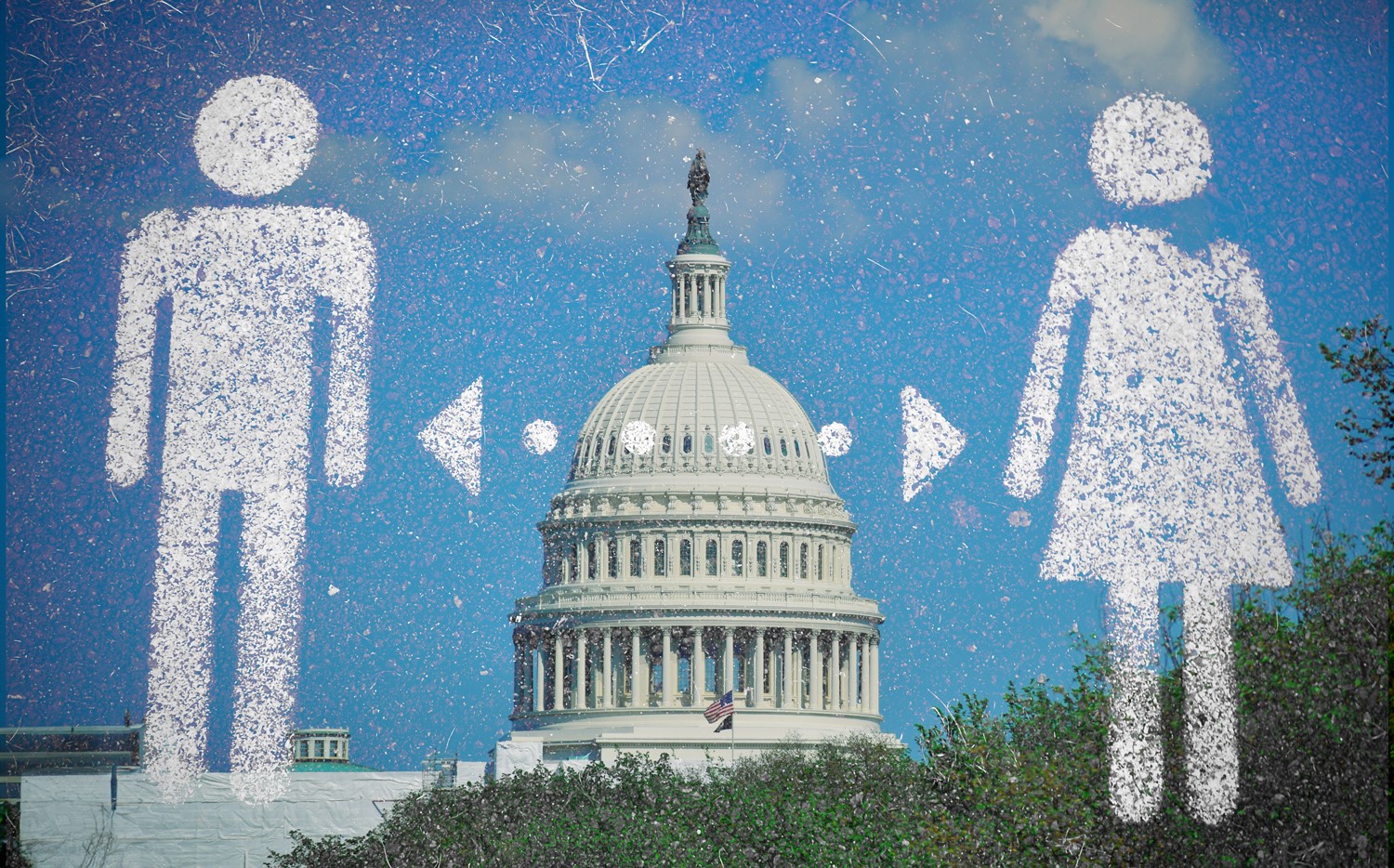Why is the Trump campaign getting involved in the gender wars? They’re reading the room

Why is the Trump campaign getting involved in the gender wars? They’re reading the room
The following article by Michael Adams and David Jamieson was published in The Globe and Mail on August 19, 2024.
Joe Biden’s frailty was an easy target for Donald Trump and the Republicans, but Kamala Harris’s presumptive presidential nomination at the upcoming Democratic Party convention in Chicago means they must change tack. Their critique might focus on her politics (she’s a liberal Californian), her race (she is the daughter of a Black Jamaican father and an Indian mother), or even her childhood (she spent her formative teen years in Montreal, in socialist Canada). But perhaps none of these perceived vulnerabilities is as politically risky as Ms. Harris’s gender.
America has experienced a backlash against progressive modernity since the 1970s. A good part of that movement is the backlash against feminism, and the assertion that women should be treated equally to men. We can see that tension in responses to our survey question asking whether “the father of the family must be master in his own house,” a classic articulation of patriarchy.
At Environics, we have been tracking social values in Canada and the United States for decades. By the early 1990s, we found that Canada had seen a decline in support for the idea that “father must be master” from 42 per cent in 1983 down to 25 per cent in 1992. We wondered what we would find in the U.S., the country that has produced feminist icons like Betty Friedan and Gloria Steinem.
In 1992, 42 per cent of Americans said yes, the father should be master in his own house. The finding held up over time. By 2000, the proportion increased to 48 per cent. It peaked in 2004 at 52 per cent and has hovered at just under half ever since; in 2023, it was 49 per cent.
In short, support for patriarchy in the U.S., as measured by this survey item, has been stubbornly persistent over the last 30 years at around half the population. Not surprisingly, the belief that the father must be master aligns with political choice. Among Republican voters, six in 10 (59 per cent) agreed in 2023 that the father must be master, as compared with four in 10 Democrats (40 per cent).
Now in 2024, with the Democrats fielding another woman as their presidential candidate, it should be no surprise that the gender wars have returned. Mr. Trump’s choice for vice-president, J.D. Vance, has criticized Ms. Harris for not having children, denouncing the stranglehold of bitter “cat ladies” on government (but clarifying that he has nothing against cats).
If Mr. Vance was aware of our polling, he might be heartened to know that most Republican supporters – and substantial minorities of Democrats and independents – agree that the father of the family must be master in his own house. Maybe he’s found his campaign’s silver bullet?
Not that it matters to Americans, but things remain quite different here in Canada. The roughly two-to-one gap we first noticed in 1992 has continued over the past three decades. In 2023, Canadians were only half as likely as Americans to agree that the father should be the master in the house (24 per cent compared to 49 per cent). Even with significant and long-standing immigration from countries that are often more religious and patriarchal than Canada has become, Canadians overall maintain a distinct perspective on gender equality. And that distinct outlook includes supporters of all political parties. About 30 per cent of Canadian Conservatives believe the father must be master – only about half as likely as their Republican cousins (and less likely than Democrats, too) to think the father must be the boss.
Similar partisan patterns in both countries hold for the extremely divisive and vote-determining wedge issue of abortion.
The next few months will reveal whether an openly patriarchal appeal to U.S. voters is a winning move in America in 2024. It’s not a slam dunk: some Americans who believe Dad should be on top may nonetheless be put off by some of the harder edges of the conservative agenda. But while the U.S.’s election result will inevitably influence Canada, Canadian politicians should be careful about borrowing from the gender wars chapter of the U.S. playbook. The underlying values landscape in Canada is marked by more common ground, especially on social issues. Canadian leaders who aspire to be the boss in the House are wise to be circumspect about who’s on top (if anyone) in our households.
Michael Adams is president of the Environics Institute and author of American Backlash, which was first published in 2005 and is being updated for 2025. David Jamieson is chief scientist at Environics Research.
Like what you're reading? With our bi-monthly e-newsletter, you can receive even more with the latest details on current projects, news, and events at the institute.
Subscribe